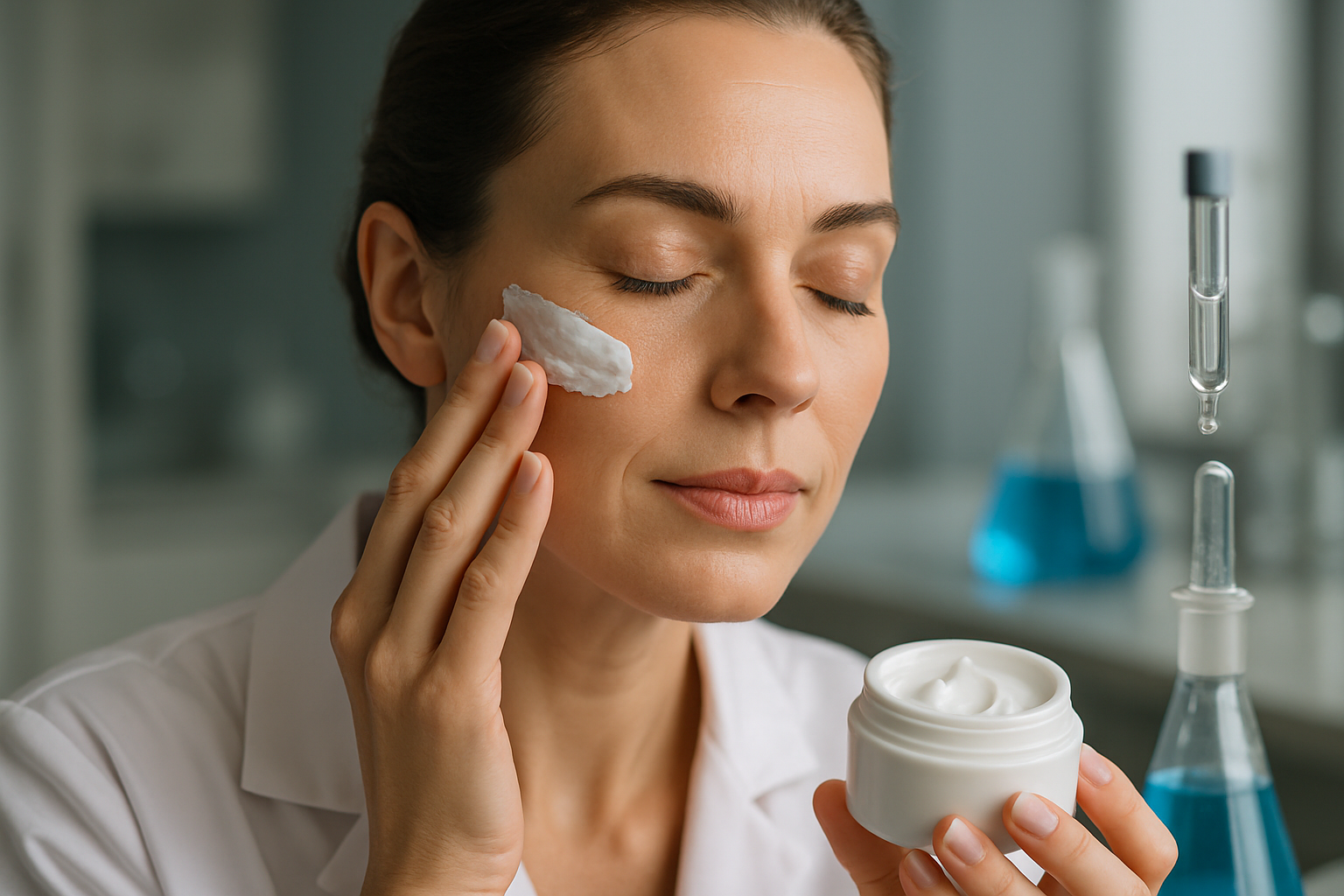Bioactive Peptides: The Future of Skin Rejuvenation
The beauty industry is constantly evolving, with innovative technologies and ingredients emerging to address various skincare concerns. Among these advancements, bioactive peptides have gained significant attention for their potential to revolutionize skin rejuvenation. This cutting-edge approach harnesses the power of small protein fragments to stimulate cellular processes, offering a promising solution for those seeking effective anti-aging treatments. As consumers become more informed and discerning about their skincare choices, the demand for science-backed, results-driven products continues to grow. Bioactive peptides represent a confluence of scientific research and beauty innovation, presenting a new frontier in the quest for youthful, radiant skin.

Researchers have identified various types of bioactive peptides, each with unique functions. Some peptides stimulate collagen production, while others improve skin barrier function or reduce inflammation. The specificity of these peptides allows for customized skincare formulations that address individual concerns, from fine lines and wrinkles to hyperpigmentation and skin texture issues.
Historical Context and Development
The use of peptides in skincare is not entirely new, but recent advancements have significantly expanded their potential. Early peptide research in the 1970s focused primarily on their role in wound healing and tissue repair. It wasn’t until the late 1990s and early 2000s that scientists began exploring their applications in cosmetic dermatology.
The first generation of peptides in skincare included simple sequences like palmitoyl pentapeptide-4, which showed promise in reducing the appearance of fine lines. As research progressed, more complex and targeted peptides were developed, leading to the current landscape of bioactive peptides that can address a wide range of skin concerns.
Current Industry Trends and Market Impact
The bioactive peptide market has experienced rapid growth in recent years, with projections indicating continued expansion. This surge is driven by increasing consumer interest in advanced skincare solutions and a growing aging population seeking effective anti-aging products. Industry analysts predict that the global peptide-based skincare market will reach billions of dollars by 2025, reflecting the significant impact of this technology on the beauty sector.
Leading skincare brands have incorporated bioactive peptides into their premium product lines, often positioning them as hero ingredients. This trend has sparked a new wave of peptide-focused brands and product ranges, catering to consumers looking for scientifically-backed skincare solutions.
Benefits and Efficacy of Bioactive Peptides
The appeal of bioactive peptides lies in their potential to offer targeted, non-invasive solutions for various skin concerns. Some of the key benefits associated with these ingredients include:
-
Collagen stimulation: Certain peptides can signal skin cells to produce more collagen, improving skin firmness and elasticity.
-
Wrinkle reduction: By promoting collagen synthesis and skin repair, peptides can help minimize the appearance of fine lines and wrinkles.
-
Improved skin barrier function: Some peptides enhance the skin’s natural protective barrier, leading to better hydration and resilience against environmental stressors.
-
Anti-inflammatory properties: Specific peptides have been shown to reduce skin inflammation, potentially benefiting conditions like rosacea and acne.
-
Enhanced wound healing: The ability of peptides to accelerate wound healing can contribute to faster recovery from skin damage and improved overall skin health.
Clinical studies have demonstrated the efficacy of various bioactive peptides in improving skin appearance and function. However, it’s important to note that results can vary depending on the specific peptides used, their concentration, and the overall formulation of the product.
Challenges and Future Directions
While bioactive peptides show great promise, there are still challenges to overcome in their development and application. One significant hurdle is ensuring the stability and efficacy of peptides in skincare formulations. Peptides can be sensitive to environmental factors and may degrade over time, potentially reducing their effectiveness.
Another challenge lies in optimizing peptide delivery systems to ensure maximum penetration and absorption into the skin. Researchers are exploring various technologies, such as nanoencapsulation and liposomal delivery, to enhance the bioavailability of peptides in skincare products.
Looking to the future, the field of bioactive peptides in skincare is poised for continued innovation. Areas of focus include:
-
Development of more targeted and potent peptide sequences
-
Combination therapies that synergize peptides with other active ingredients
-
Personalized peptide formulations based on individual skin profiles
-
Integration of artificial intelligence in peptide design and optimization
Incorporating Bioactive Peptides into Skincare Routines
For consumers interested in exploring the benefits of bioactive peptides, it’s essential to approach their use thoughtfully. Here are some tips for incorporating peptide-based products into a skincare routine:
-
Start with a clean canvas: Cleanse the skin thoroughly before applying peptide products to ensure optimal absorption.
-
Layer wisely: Apply peptide serums or treatments after cleansing and toning, but before heavier creams or oils.
-
Be consistent: Regular use is key to seeing results, as peptides work gradually over time.
-
Combine with complementary ingredients: Peptides can work synergistically with other actives like antioxidants and hyaluronic acid.
-
Protect your investment: Always use sun protection, as UV exposure can degrade peptides and counteract their benefits.
It’s important to note that while peptides are generally well-tolerated, individuals with sensitive skin should introduce new products gradually and consult with a dermatologist if concerns arise.
As the beauty industry continues to evolve, bioactive peptides represent a exciting frontier in skincare innovation. By harnessing the power of these small but mighty molecules, we may be on the cusp of a new era in skin rejuvenation, offering more effective and personalized solutions for achieving healthy, youthful-looking skin.






